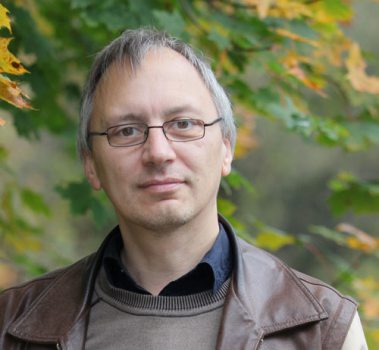Ales Dashchynski: the may have supported the abolition of the death penalty, though he couldn't say it openly
How was the topic of the death penalty covered in Belarus more than 15 years ago? One of the first extensive articles appeared in the independent Belarusian newspaper "Svaboda" February 17, 1998, when its editor was Ihar Hermianchuk. The article was placed in the "Topic" column and was titled "Death Penalty".
At that time, the independent newspaper correspondent was able to talk with a judge of the Supreme Court on the death penalty. And it happened in the Supreme Court, in the judge's chambers.
Here's the story of Ales Dashchynski:
“I just said I was from the newspaper "Svaboda", and the judge agreed to talk in his office. The conversation was taped. Even at that time I wondered why it happened. But it is clear that access to the judge was simpler.
I knew that the judge imposed death verdicts and decided to just go to him. I was afraid that if I negotiated about the meeting on the phone, he could get frightened and refuse to be interviewed by "Svaboda". Therefore, I decided to try my luck. I went inside, it seems that the guards were more loyal at that time. I knocked, greeted him, told I was from "Svaboda" and was preparing such an article. "You are a famous judge who handed death sentences. I've heard many good things about you, that you take all these sentences close to your heart," I added. He agreed to talk.
Then I went to the Minsk City Court, and there, in the office, I was given to see a few cases in which the death penalty was imposed. Here I negotiated in advance, but received permission, although I was from "Svaboda". I returned several times. I saw there one case and that's how I tied coctacts with a family from Smaliavichy and for the first time managed to communicate with the mother of a death convict, Maryia Stasialovich, which apparently, hasn't been done in Belarus earlier.
Ales Dashchynski talked with Judge Uladzimir Chamrukou, who issued the greatest number of death verdicts while working in the Minsk City Court and later became a judge of the Supreme Court.
Here's a snippet of that conversation - Judge tells about the psychological state at death sentence:
“Capital punishment is the weakness of the state. It is for this reason, such provision is contained in the Criminal Code. Other institutions that could lead a society to its normal state are still weak. I am a gentle man by nature, and it is difficult for me to issue the death penalty. I well remember the first such case. It was the case of Babinau and Svirkou, who killed an elderly woman, her daughter and six-year-old grandson, and then set the house to fore to cover their tracks. Both were sentenced to capital punishment. The next day I started shaving and saw that the whole body was covered with red spots. The nervous condition usually so bad that I do not want to touch the food. Sometimes, when declaring the verdict, I want to do it as quickly as possible and come out and light a cigarette. This procedure is very unpleasant. I particularly feared for relatives of the convicted person. I have no doubt in any verdict, but my hands start shaking. It is very hard to see the tears, crying, fainting mothers, having to call an "ambulance". It is especially hard to look into the eyes of the convict, which immediately turn somewhat crazy.
Typically, after the announcement of a death verdict in the court, there comes deathly silence and somebody can be heard falling or sobing in it. Convicts also behave differently, some of them begin to tear his clothes, climb the cage, screaming hysterically. Some are silent, some argue that they had made a very hard crime and therefore do not have the right to live.
Why did the judge agree to an interview with a journalist of the independent newspaper? Ales Dashchynski says:
“He could be really moved, or was an advocate of abolishing the death penalty, although he could not admit it openly.”



















